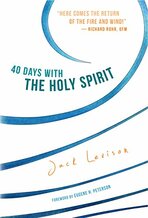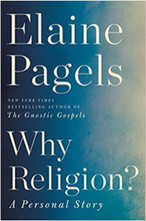 Mother Susan's Book Recommendation 40 Days with the Holy Spirit by Jack Levison As we move into Lent the first week of March – you’ll have just enough time to order one of these books and be ready to start this (new?) habit of reading a daily devotional during Lent! You are going to love this spiritual practice of daily reading/praying, and this book guides you into that flow. Rather than a theological book, this one invites us into discovery and personal encounter with the Holy Spirit by an author (professor) I trust. Each of the 7 weeks of Lent has a theme: Breathing, Praying, Practicing, Learning, Leading, Building and Blossoming. And each day (within each week) has a format of: scripture, meditation, reflection and prayer. Join me in this invitation to be transformed by Jesus’ Spirit who lives within us and all around. If this is not the book for you – choose another - or use the Living Compass (theme: Forgiveness) which we are offering at no charge at the church. Lent is the time of “honeymoon with God;” to look at our lives and “think again.” Let’s be ready for Easter and the promise of new life…  Father Nick's Book Recommendation “Why is religion still around in the twenty-first century? Why do so many still believe? And how do various traditions still shape the way people experience everything from sexuality to politics, whether they are religious or not? In Why Religion? Elaine Pagels looks to her own life to help address these questions. These questions took on a new urgency for Pagels when dealing with unimaginable loss—the death of her young son, followed a year later by the shocking loss of her husband. Here she interweaves a personal story with the work that she loves, illuminating how, for better and worse, religious traditions have shaped how we understand ourselves; how we relate to one another; and, most importantly, how to get through the most difficult challenges we face. Drawing upon the perspectives of neurologists, anthropologists, and historians, as well as her own research, Pagels opens unexpected ways of understanding persistent religious aspects of our culture.” Comments are closed.
|
Archives
January 2021
|

 RSS Feed
RSS Feed
